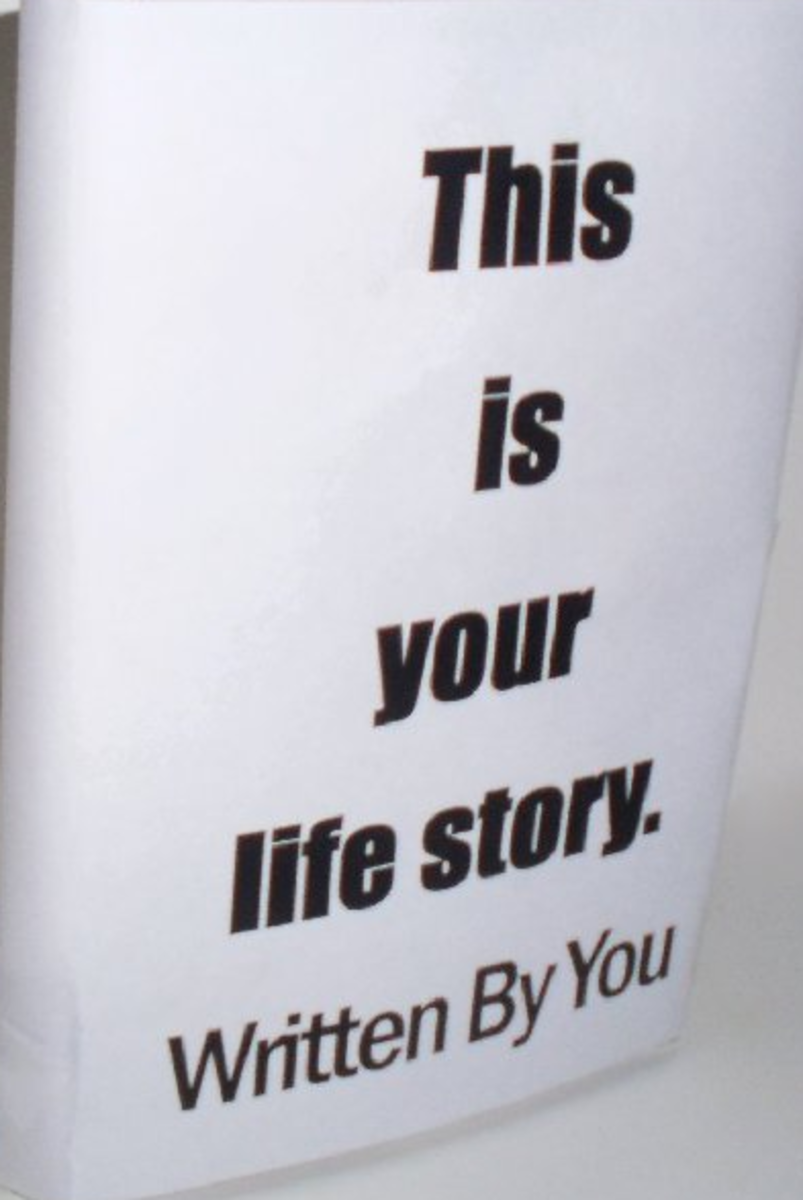The Writer's Mailbag: Installment 254
Aiming for a Bullseye
Anyone out there ever shot a gun?
I know, an odd question, but you should be accustomed to them if you visit the Mail Room often.
So, anyone?
I spent a year taking ROTC in college (Reserve Officer Training Corps) and on weekends they would gather together all us boy soldiers, take us out to the firing range, and have us practice shooting our rifles. Some of the most miserable Sundays of my life were spent on that firing range in downpours, shooting at human-shaped targets or at bullseye targets.
I was thinking about that the other day, which led me to ask this question: what is my target in writing? I get up every single day and shoot at my proverbial writing targets, trying to perfect my aim, but what exactly is that target? Do I have one? Do I have a target which, when I hit it, I can raise my arms in triumph and declare myself to be a marksman?
Not really, no! My target is a bit more nebulous than all that. For me the target, in writing, is the act of writing itself. I find joy in writing. Period! I find satisfaction in creating stories. Those stories are my targets and they make me happy.
How about you? What’s your target?
While you ponder that, let’s go through the mail today.

Where Does It Come From?
From Ann: “It's a strange feeling, being outside myself as I read my words seemingly coming from another place - is that what you feel, bill?”
Ann, still to this day I don’t know where it all comes from. It is absolutely bizarre to me that I am a writer. I showed very little inclination towards writing until I hit sixty years of age, but the floodgates really opened up after I finished alcohol treatment in 2006. Suddenly the creativity blossomed and I just had to write. I had no clue up till that year that I had any talent at all in writing.
So yes, Ann, that is exactly what I feel, like an out-of-body experience, me looking down watching my alter-ego pound away at the keyboard.
I’m as shocked as I can be, Ann, and so very grateful.
Evaluating and Rating Our Own Work
From Ann: “Another question: Do you rate your own books in any personal order of preference? I've been looking through my old articles and I've found some that actually surprise me, in that I didn't know I could write like that! Again, not being big-headed, just reacting as though it's someone else's work, not really mine. Does this happen to you? Just realised this is sort-of the same question! Anyway, treat it as you wish...”
I don’t do that with my novels, Ann, but I do find myself doing it with Hubs I have written over the years. My novels, I’m proud of them all. I know how much work went into them, and I’m stunned that I was able to write seven of them.
But my articles .. . I will get a comment on some article I wrote six years ago, and I’ll go back and read that article, and I’ll be like “Damn, Bill, that wasn’t bad at all.” LOL But the opposite also happens. I’ll be like “What a bunch of doo-doo that was, Billy Boy. Either re-write that rubbish or delete it!”
Since I’ve written over one-thousand of those articles, sanity has to win the day. I simply don’t have the time to rate them all or fix them. I just have to live with my warts, which is something I’m learning to do with a semblance of grace.

DREAMS
From Lori: “Bill, have you ever written dream sequences? If so, how did you let the reader know it was a dream without the obvious statement, "And Joe had a dream..."? Some writers italicize the dream. Also, when do you think a dream sequence hinders or enhances the plot? Thanks.”
Oh my yes, Lori! My “Shadow” series features dream sequences in every book. Here’s how I introduced one of them:
That night the children came to me again. They were in Bigelow Park, sitting on the Big Toy, looking across the street at Bitron’s house. Liz and I joined them. Mary Burnett looked at us, smiling gently.
“More will join us soon, Mister Baker.” She pointed across the street. “He feels safe now, untouchable, so the killings will begin again.”
“There has to be a way, Mary. You have to help us somehow. Liz and I don’t know what to do to stop him.”
“You know I cannot help you, Mister Baker. It is forbidden. You must hurry, but you must also be very careful. He wants to cause you emotional pain very badly.”
The others with Mary nodded in agreement, their faces no longer innocent, souls trapped in an unnamed struggle. They faded and were gone. Liz rolled over and put her head on my shoulder. She held me tightly the remainder of the night. There was no point in conversation. Liz’s tears said all there was to say.
Introducing a dream does not have to be an elaborate task. Set the stage leading up to it and you will find it much easier to do. In the example above, the reader knows which children I’m talking about, and he/she knows it is a dream, because I laid the groundwork earlier in the novel.
Yes, italics work. It’s an effective way to differentiate a dream from reality but again, you have to lay the groundwork earlier in the novel.
That last question of yours is a tough one. Dream sequences enhance the plot when . . . Ta-Da . . . when they enhance the plot! If there is not a specific reason for adding them (like giving us a glimpse into the character’s past), then don’t use them. I use them in my Shadow series because those novels are paranormal thrillers, and the only way the dead can communicate with my “hero” is through dreams. If it were not for that I probably wouldn’t use them at all.

Uploading Problems
From Venkatachari M: “I am confused at that problem with the uploading program of your e-book. You have to upload the word file or PDF file and it automatically picks it up. I recently edited my Economics book and uploaded the same file for both e-book format and paperback format. It is now in good form.”
Venkatachari M, normally I have no trouble at all uploading a book with Amazon. Fifteen before this one went smoothly, but for some reason they are not accepting my JPEG cover image for the ebook. I plan on tackling this problem this weekend, so hopefully I’ll have it all worked out by the time you read this. Believe me, I’m as confused as anyone by this problem.
Back to Target Practice
It never ends, you know. Not for us writers. We are constantly practicing our craft, archers squinting through the sites, at that small circle hundreds of yards away. Will we ever hit the bullseye? Will we know when we do? Or will it matter at all if we do, the joy found simply in trying?
Thanks a bunch for stopping by. I hope to see you again next week. Until then, Happy Writing to you all!
2019 William D. Holland (aka billybuc)
“Helping writers to spread their wings and fly.”








